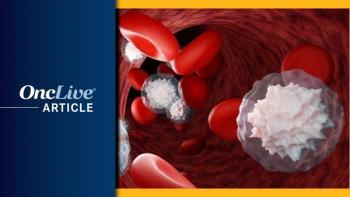
Supplements and Featured Publications
- Research Efforts Underway for RARA+ MDS and AML
- Volume 1
- Issue 1
A Potential Role for Tamibarotene in the Treatment of Higher-Risk MDS
Dr Gustavo Rivero reviews the treatment options for patients with newly diagnosed higher-risk MDS and discusses tamibarotene’s recent orphan drug designation.
Gustavo Rivero, MD: Historically, the 3 main high-risk myelodysplastic syndrome [MDS] have been concentrated on the use of hypomethylating agents. The 2 FDA [United States Food and Drug Administration]-approved agents are azacitidine and decitabine. These 2 agents’ composite overall response is about 45%, with almost 15% of the cases representing complete remission. The rest is an erythroid response of platelets and myeloid responses. So the 2 agents are equal in efficacy, but as I mentioned before, a substantial group of patients might exhibit primary refractoriness, and almost every single patient responding to the medication will develop secondary refractoriness.
The recent designation of tamibarotene as an orphan medication by the FDA represents an advance in the potential management of high-risk MDS. I just want to comment regarding the mechanism of action. I mentioned before that most of the data is being extrapolated from acute myelogenous leukemia. Specifically, a recent publication in Blood Advances has revealed that pediatric acute myeloid leukemia [AML] may express in the same way adult AML expressesRARA [retinoic acid receptor, alpha] BIA super-enhancer. I explained that a super-enhancer is a new gene for which leukemia might develop an addiction, and these genes are no more than transcriptional deregulation in acute myelogenous leukemia. So, tamibarotene is a RARA agonist that creates a balance between the ligand, which is retinoic acid, and RARA overexpression by itself. By restoring RARA, acute differentiation might occur in cells that are specifically leukemic, but in the case of MDS, it is expected to leave about the same clinical benefit.
Transcript edited for clarity.
Articles in this issue
almost 3 years ago
Dr Alfonso Piérola on Unmet Needs in Higher-Risk MDSalmost 3 years ago
Dr Borthakur on the SELECT MDS-1 Trial in Newly Diagnosed MDSover 3 years ago
Future Perspectives in Higher-Risk MDSover 3 years ago
SELECT-MDS-1: Review of Study Design and Objectives



































